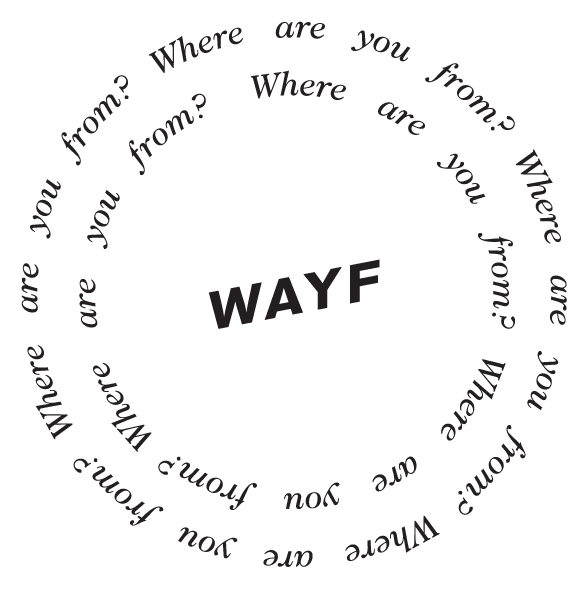Two sides of the Jewish world
Ellie Bouhadana
My sister and I connect to my dad through music as well as food. In the morning we’d drive to school and he’d play his Mizrahi Jewish music. They do really interesting tones in the back of the throat. We’d always be singing together. As a child I was kind of embarrassed about it. We did car lifts with other kids from my class and I’d say, ‘Aba, turn it off. Let’s just listen to the radio’. You learn subtle racism as a kid, but growing up now, I love that music.
My family is of mixed Jewish heritage—North African and Eastern European/German. My dad’s side were from Morocco for generations, where the Jews had a relatively safe life in areas of North Africa and Arab countries. They lived there for a long time and anti-semitism was limited. They also had rich relationships with non-Jewish people. At some point it turned, and they weren’t super welcome anymore. So in the 60s they fled to Israel/Palestine where my dad was born.
I have so much respect for my family’s migration. Their whole life was in one country and then, in their mid-30s, they moved a whole family to another country and tried to fit in. They didn’t know the language fluently because they spoke a different dialect—Judeo-Arabic—which is an interesting language that’s not spoken so much now. They experienced so much racism coming from an Arab-Jewish background—inequality that isn’t spoken about much in Israeli society now. Eventually Safta decided she didn’t want to live there anymore. She felt unsafe.
My dad was 16 when they moved to Australia. They were very connected to their Jewish culture and joined a synagogue for Mizrahi Jews. Mizrahi are the Jews of North Africa ... I can’t imagine what their life was like when they first got here. They had to learn a whole other language, and sadly my grandmother was in a very bad car accident and became a quadriplegic. She was in a wheelchair for the rest of her life, and that made things even harder for them. They didn’t really integrate into society, up until they passed away.
My personal relationship to my dad’s side was based around food and family meals. We could enjoy those things together even without the language—I can speak Hebrew, but my grandpa never thought I could. And he never spoke much English, which made communication between us hard.
On my mum’s side, my grandparents are from two different parts of Eastern Europe. They were survivors of the Holocaust, so there’s a lot of intergenerational trauma. My grandfather lived his whole childhood in fear of being murdered, because of being Jewish. He was born in Germany and was 13 when the Holocaust ended. He was shipped around and forced out of Germany into Poland, and ended up in the Warsaw Ghetto. Most of his family perished, but he survived with his mother.
They found his father along the way, but sadly one of his brothers was murdered in a boarding school that was burned down just when he was about to be liberated. It was shocking timing. His family were in Eastern Europe during the war and then fled and were accepted into Israel. Then my grandfather came to Australia, where he and my grandmother met.
My grandmother was born just after the Holocaust in a camp for survivors, and that really influenced my upbringing because a lot of history, language and food comes through the maternal side. I’ve had a very rich upbringing with Jewish food and Eastern European food.
When my mum and dad were younger, they used to go to Israel together a lot. Mum’s not Moroccan, but she would make a point to learn from dad’s family about their cuisine. She wanted us to know our identity on our dad’s side of the family too, and she did that through making their food. It’s been an important connection for me, and I know for my dad as well.
Recently while I’ve been making my cookbook, I’ll come across a new recipe I want to make—for example this Moroccan biscuit called Rifat. So I’ll go to my aunty, Dad’s sister, for a recipe and Dad and I will make it together. Somehow Dad just knows how to do it. It’s very cool to see. He’ll say, ‘Yeah, I watched my mum do this every week’—it’s in his genes. I’ve been learning a lot more about my dad’s upbringing in the last few years. We were raised with some parts of his culture, but he’s been somewhat silent about his identity. Now I think that might have been a survival mechanism. But also, I think, being a man, he just wanted to raise his family better than his parents could because of their circumstances. Within a lot of Jewish culture in Melbourne, the main story is an Eastern European story of survival. That is so important to my identity, and to so many others’, but what my dad’s side of the family went through is rarely spoken about. It’s hard to speak about, but I believe it’s something that should never be skipped over it’s also a part of our story.
I haven’t been to Morocco, but I want to soon, and dive into all of the Jewish elements there. Not many Jews live there anymore. It’s an identity that’s not quite been erased, but that still surprises people. ‘What? There are Moroccan Jews?’ They’ll say. It’s pretty wild. I’m very lucky to have two wonderful parents, who have both affected me in really beautiful ways, from different sides of the Jewish world.
